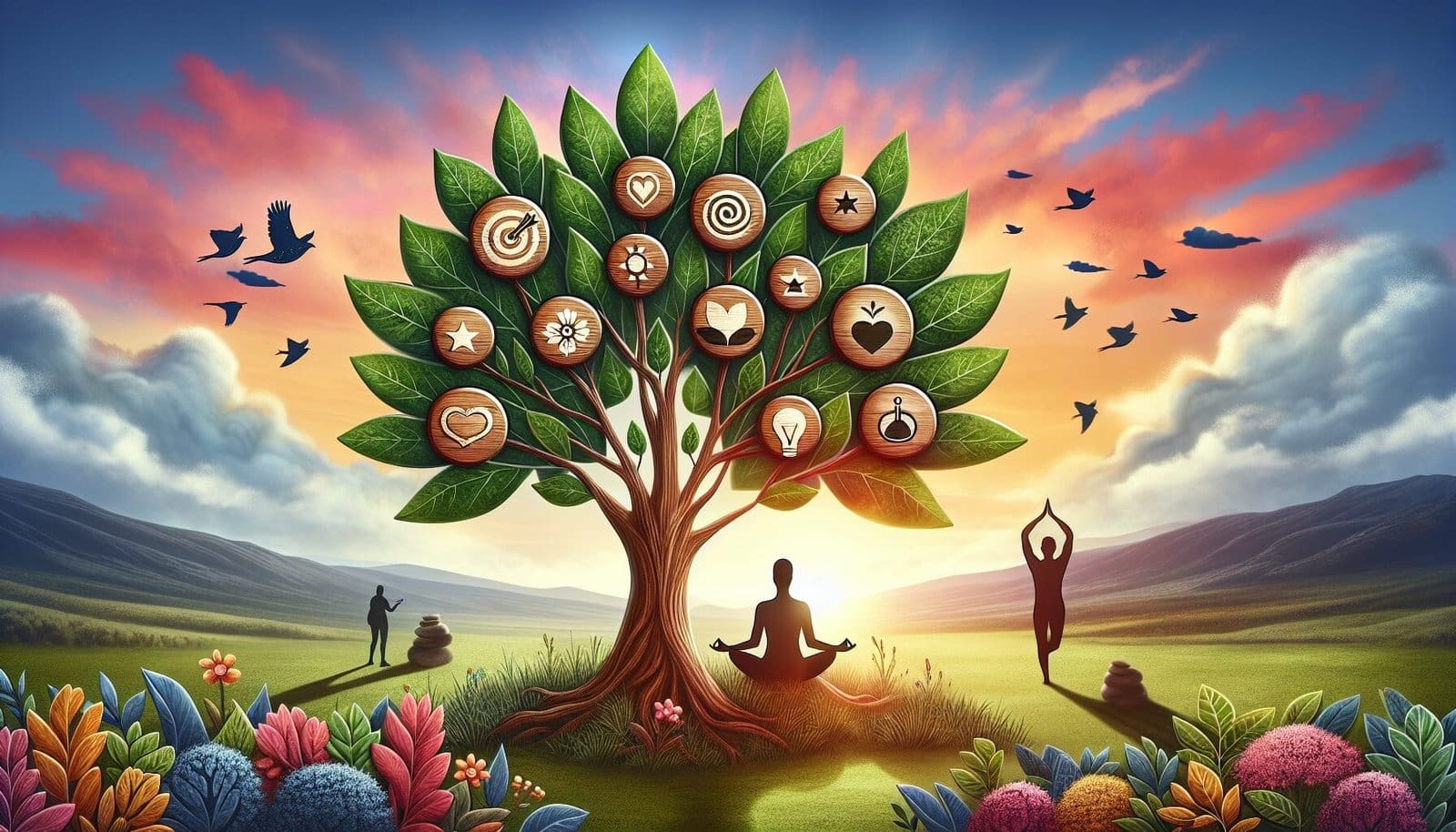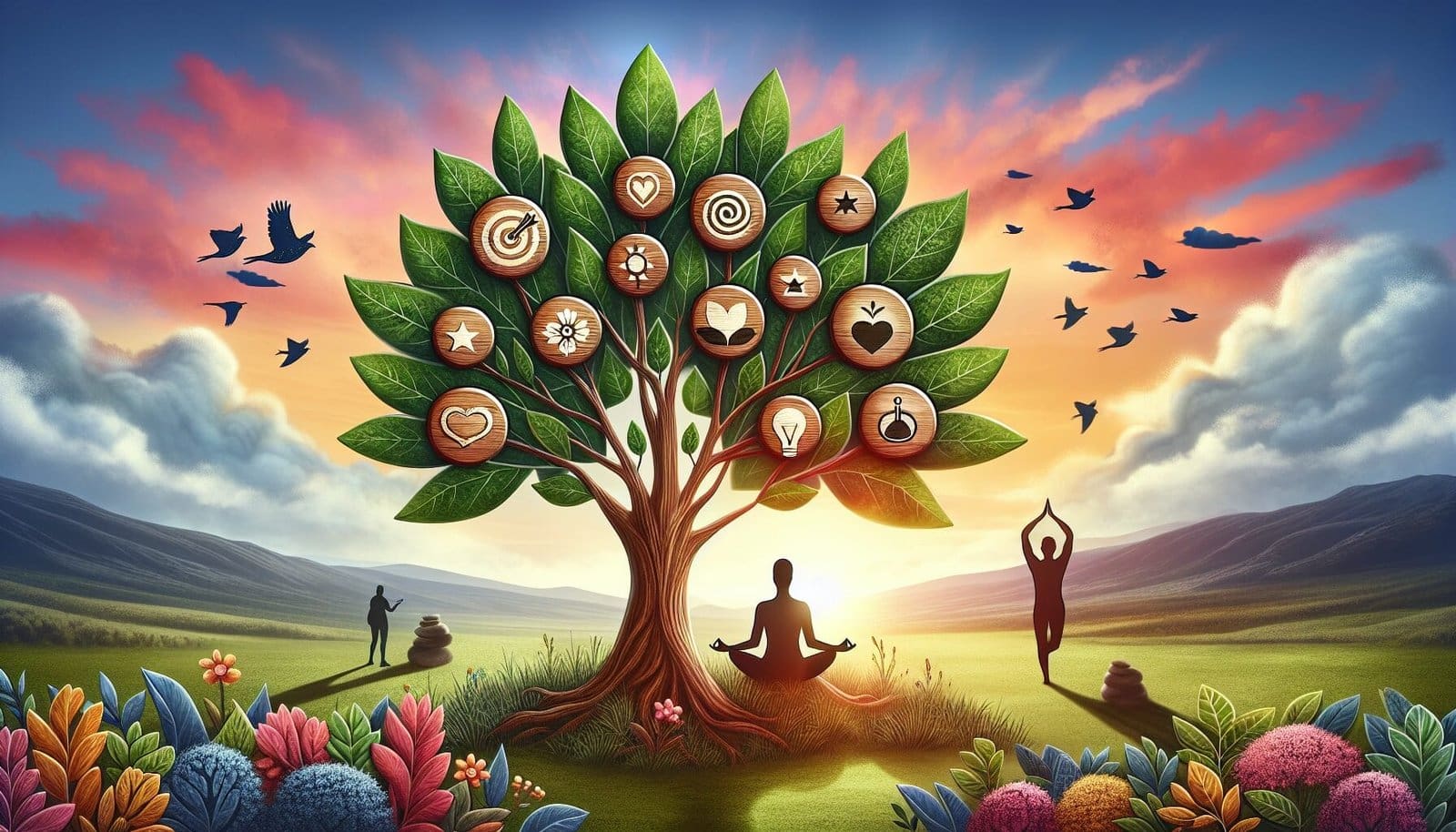Are you looking to find simple yet effective ways to enhance your personal development journey and ultimately lead a happier life? Look no further! We have curated a list of 10 practical tips that can help you transform your mindset, build self-confidence, and foster personal growth. From setting clear goals to practicing self-care, each tip is designed to provide you with the tools and insights necessary to make positive changes and become the best version of yourself. Embark on this journey with us as we explore the essence of personal development and guide you towards a more fulfilling and satisfying life.

Setting Goals
Setting goals is an essential part of personal development. It helps us focus our energy and efforts towards achieving what is truly important to us. To get started, we need to identify our values and priorities. We need to ask ourselves, what truly matters to us? Is it our career, our relationships, our health, or personal growth? Once we have a clear understanding of our values, we can then create actionable goals. These goals should be specific, measurable, attainable, relevant, and time-bound (SMART). Breaking our goals down into smaller steps also helps us stay motivated and organized. By taking small steps each day, we can make progress towards our larger goals.
Time Management
One common challenge in personal development is managing our time effectively. Setting specific goals and deadlines is a great way to stay organized and ensure that we are making progress. It gives us a sense of direction and helps us prioritize our tasks. Another important aspect of time management is eliminating distractions. We live in a world filled with constant interruptions, such as social media notifications and emails. By minimizing these distractions and focusing on one task at a time, we can increase our productivity and achieve our goals more efficiently.
Building Self-Confidence
Self-confidence plays a significant role in personal development. When we believe in ourselves and our abilities, we are more likely to take action and pursue our goals. To build self-confidence, it is crucial to identify and challenge negative beliefs. We need to recognize the self-limiting beliefs that hold us back and replace them with positive and empowering thoughts. Additionally, practicing self-care and self-compassion is essential. Taking care of our physical and emotional well-being helps us develop a positive self-image. Celebrating our accomplishments, no matter how small, also boosts our self-confidence and motivates us to keep pushing forward.
Improving Communication Skills
Effective communication is key to personal and professional success. To improve our communication skills, we can start by practicing active listening. This means giving our full attention to the person speaking, maintaining eye contact, and truly understanding their message. Assertive communication is another important skill to develop. It involves expressing our thoughts and feelings clearly and respectfully, while also considering the needs and feelings of others. Non-verbal communication, such as body language and facial expressions, also plays a significant role in our interactions. Paying attention to our non-verbal cues and being aware of how we present ourselves can greatly enhance our communication skills.

Managing Stress
Stress is a common experience in today's fast-paced world, but managing it effectively is crucial for personal well-being. One strategy is to identify and manage stressors. By recognizing the sources of stress in our lives, we can take steps to reduce or eliminate them. This may involve setting boundaries, delegating tasks, or seeking support from others. Practicing relaxation techniques, such as deep breathing exercises or meditation, can also help us manage stress. Taking breaks, engaging in hobbies, and spending time with loved ones can provide much-needed balance and restore our energy levels.
Developing Emotional Intelligence
Emotional intelligence is the ability to recognize and manage our emotions effectively. It involves being aware of our own feelings and those of others, and using that understanding to navigate our interactions. To develop emotional intelligence, we can start by recognizing and managing our own emotions. This may involve techniques such as journaling or seeking therapy. Empathy and understanding are also important components of emotional intelligence. Putting ourselves in someone else's shoes and seeking to understand their perspective fosters stronger relationships and more effective communication. Effective conflict resolution is another aspect of emotional intelligence. By remaining calm and seeking mutually beneficial solutions, we can resolve conflicts in a healthy and productive way.
Cultivating Positive Relationships
Positive relationships are essential for personal development and overall happiness. Building a supportive network of friends, family, or mentors can provide us with guidance, encouragement, and a sense of belonging. It is important to surround ourselves with people who support our goals and values. Practicing active gratitude towards our loved ones is also vital for maintaining healthy relationships. Expressing our appreciation for their presence and contributions can strengthen our bonds and create a positive atmosphere. Additionally, conflicts are bound to arise in any relationship. Resolving conflicts in a healthy and respectful manner, with open communication and a focus on finding a win-win solution, can help to further cultivate positive relationships.
Practicing Mindfulness
In today's fast-paced world, practicing mindfulness is more important than ever. Mindfulness is the practice of being fully present in the moment, without judgment. It involves paying attention to our thoughts, feelings, and sensations without getting caught up in them. Engaging in meditation or deep breathing exercises is a great way to cultivate mindfulness. By taking a few minutes each day to sit quietly and focus on our breath or engage in guided meditation, we can reduce stress and improve our overall well-being. Additionally, practicing gratitude is a powerful mindfulness technique. Taking a few moments each day to reflect on what we are grateful for helps us stay focused on the positive aspects of our lives.
Continued Learning
Personal development is a lifelong journey, and continued learning is a crucial aspect of that journey. Reading books or articles on personal development can provide valuable insights and new perspectives. It allows us to learn from the experiences and wisdom of others. Attending seminars or workshops is another great way to expand our knowledge and skills. These events often provide opportunities for networking and connecting with like-minded individuals. Additionally, learning new skills or hobbies not only keeps our mind engaged and active but also opens up new possibilities and avenues for personal growth.
Taking Care of Physical Health
Physical health is the foundation of personal development. Taking care of our bodies is essential for overall well-being and enables us to pursue our goals with vitality and energy. Regular exercise has numerous physical and mental health benefits. It boosts our mood, increases our energy levels, and reduces the risk of various health issues. Incorporating a balanced diet rich in nutritious foods helps fuel our body and mind. It provides the necessary nutrients and supports optimal brain function. Lastly, getting enough sleep is vital for our overall health and well-being. It rejuvenates our body and mind, allowing us to wake up refreshed and ready to take on the day.
Incorporating these personal development tips into our lives can lead to a happier and more fulfilling life. By setting goals, managing our time effectively, building self-confidence, improving communication skills, managing stress, developing emotional intelligence, cultivating positive relationships, practicing mindfulness, continuing our learning, and taking care of our physical health, we can unlock our full potential and live a life aligned with our values and priorities. Remember, personal development is a journey, and it takes time and effort to make lasting changes. So, let's embrace this journey and start making positive changes in our lives today.





